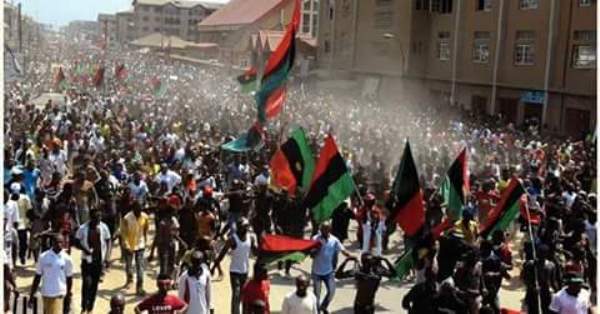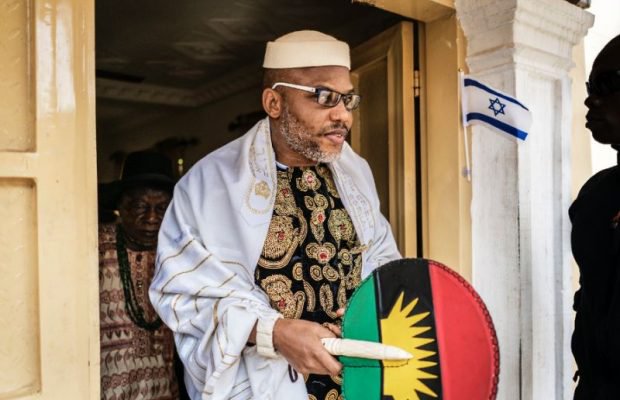not been spelt out. The only thing I heard was that Rivers would not be part of the Biafra; I think Akwa-Ibom too. But it is not clear yet whether the four minority Igbo-speaking states have openly declared that they are not going be part of Biafra. This is the immediate challenge the agitators for new Biafra will face. But grant it that Biafra will materialise; everybody is aware that the major ethnic groups in Nigeria are Hausa, Igbo and Yoruba.

The minorities are everywhere and our minorities are not distinct; we are interwoven. Even the North-Central, which is the official area regarded as the Middle Belt, is made up of six states. Four of the six are Muslim majority; they are Nasarawa, Niger, Kogi and Kwara states and the minority elements left in Plateau State, for instance, are themselves fighting one another. In addition, they don’t speak with one another except in either Hausa or English. None of them can speak with the other in their own native language, and all of them were at loggerheads with the Tiv. Initially, when our committee was asked to recommend creation of states, we intended to create Middle Belt state but when the idea was put forward, the people of Niger said they were out of it; the people of Ilorin said they were out of it and the people of Kogi also said they were out of it. So the old Plateau had to be merged with Benue and made one province while other provinces were regrouped.
So, the reality is that the three major ethnic groups, Hausa, Yoruba and Igbo, need Nigeria. Every one of them needs Nigeria. Let’s start with the Yoruba. Most of the industries are located in the South-West, mainly in Lagos, some in Ogun and some in Ibadan. According to a letter written by the late General Adeyinka Adebayo, the industries in Oyo are owned by Lebanese and Indians, but 70 per cent of the industries located in Lagos State are owned by Igbo. So the industries that are manufacturing goods in the South-West and some in the Eastern Region have the whole of Nigeria as their market, a market of about 200 million people. If there is no Nigeria, there would not be that market and what would be the consequences of lack of market?
First, the goods cannot be sold, there will be no production and there will be unemployment, and the people that are employed in industries located in the South-West are largely Yoruba. The day there is no Nigeria, there will be massive unemployment in the South-West. This is apart from the food and livestock they are getting from the North. If there is no Nigeria, they will not get them, and if they are going to import, it will take time and will be costly. By nature, they cannot grow livestock and some food items in their area. The geographical situation in South-West is different from that of the North; the animals they are growing do not enough meat and milk, unlike the ones in the North.

For the Igbo, at present there is no village where there is a flourishing market where you cannot have the Igbo conducting their own businesses. And they are living in peace; nobody is harassing them. They live within thousands of other ethnic groups and nobody is attacking them. It is a well known fact that the business of building materials is surrendered to Igbo people, as well as electrical appliances, fittings and spare parts. Commuter transportation; those luxury buses that are plying our roads from one state to another are owned by the Igbo. The day there is no Nigeria, the Igbo will have no alternative than to relocate to their states. And with the hate speeches being circulated on the social media and other platforms, it is impossible to have a peaceful dissolution of Nigeria.
That is the take on the Igbo and the Yoruba people. We the Huasa Fulani too need Nigeria. I have sat alone, without reading any book and said to myself: “What do we need from Nigeria?” And I have come up with five things we really need Nigeria for. One, we







